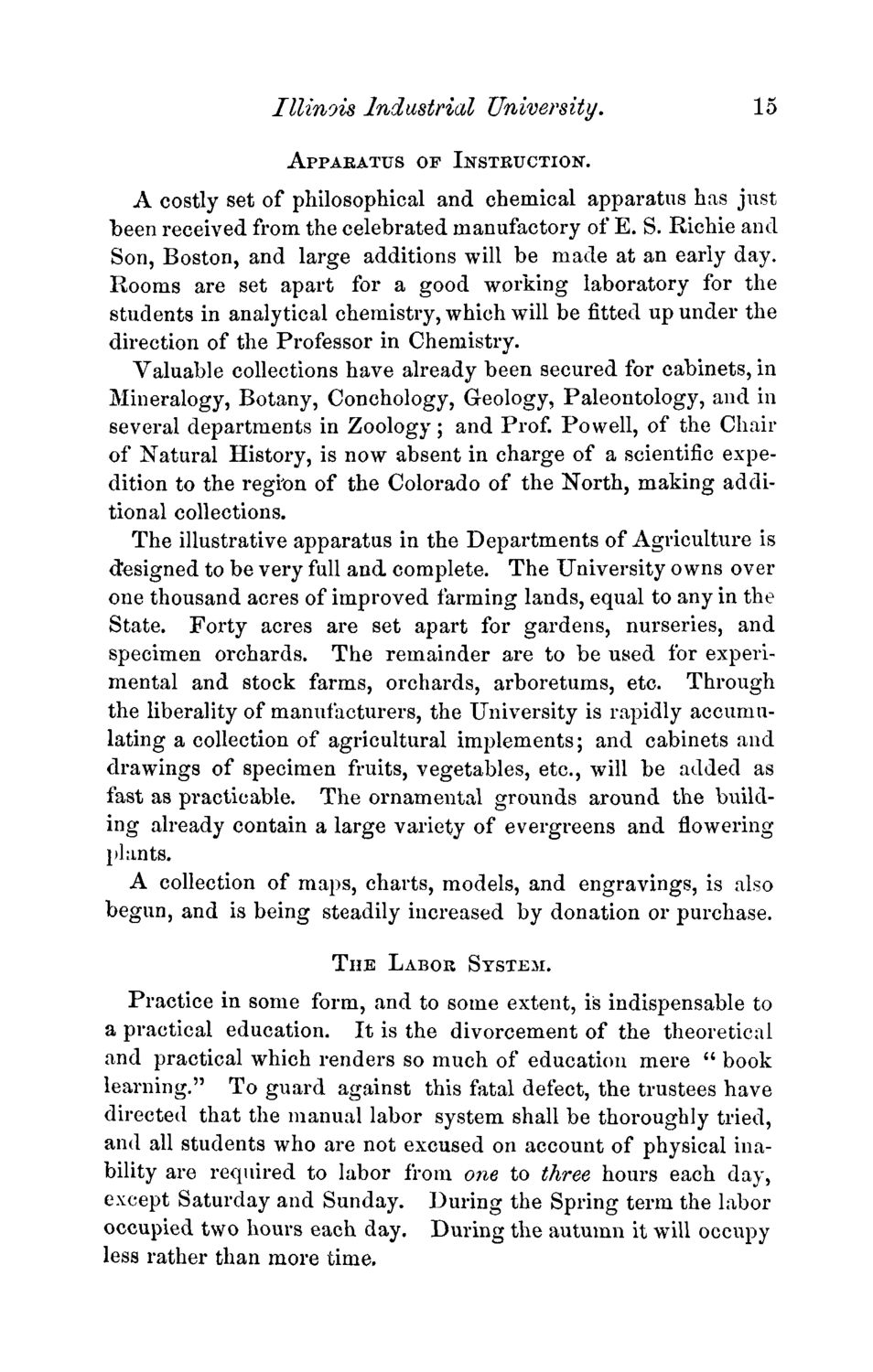| |
| |
Caption: Course Catalog - 1868
This is a reduced-resolution page image for fast online browsing.

EXTRACTED TEXT FROM PAGE:
Illinois Industrial University. APPAEATUS OF INSTRUCTION. 15 A costly set of philosophical and chemical apparatus has just been received from the celebrated manufactory of E. S. Richie and Son, Boston, and large additions will be made at an early day. Rooms are set apart for a good working laboratory for the students in analytical chemistry, which will be fitted up under the direction of the Professor in Chemistry. Valuable collections have already been secured for cabinets, in Mineralogy, Botany, Conchology, Geology, Paleontology, and in several departments in Zoology; and Prof. Powell, of the Chair of Natural History, is now absent in charge of a scientific expedition to the regi'on of the Colorado of the North, making additional collections. The illustrative apparatus in the Departments of Agriculture is designed to be very full and complete. The University owns over one thousand acres of improved farming lands, equal to any in the State. Forty acres are set apart for gardens, nurseries, and specimen orchards. The remainder are to be used for experimental and stock farms, orchards, arboretums, etc. Through the liberality of manufacturers, the University is rapidly accumulating a collection of agricultural implements; and cabinets and drawings of specimen fruits, vegetables, etc., will be added as fast as practicable. The ornamental grounds around the building already contain a large variety of evergreens and flowering plants. A collection of maps, charts, models, and engravings, is also begun, and is being steadily increased by donation or purchase. T H E LABOR SYSTEM. Practice in some form, and to some extent, is indispensable to a practical education. It is the divorcement of the theoretical and practical which renders so much of education mere " book learning." To guard against this fatal defect, the trustees have directed that the manual labor system shall be thoroughly tried, and all students who are not excused on account of physical inability are required to labor from one to three hours each day, except Saturday and Sunday. During the Spring term the labor occupied two hours each day. During the autumn it will occupy less rather than more time.
| |